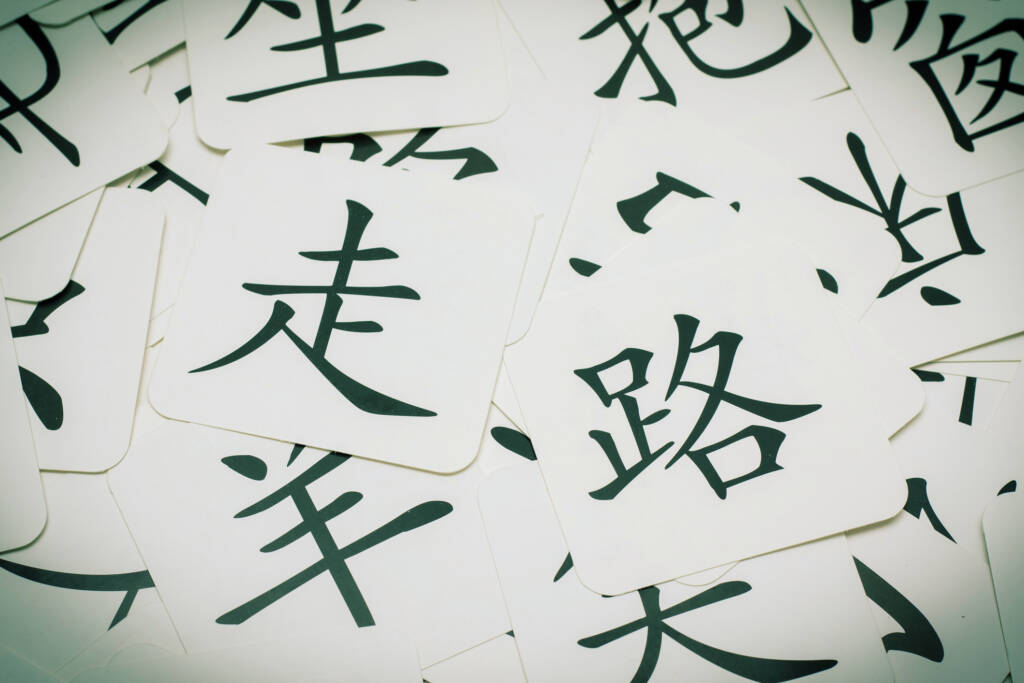
Mandarin Chinese 3 Honors

Continue your journey in the exploration of the Chinese language and the richness of its diverse cultures. In the Chinese 3 Honors course, you will sharpen the increased listening, speaking, reading, and writing skills you acquired in Chinese 1 and 2. Communication remains the main focus through speaking, listening, writing, and reading. You will dive a little deeper into the Chinese culture and apply what you learn through written practice, listening, and speaking exercises.
Major Topics and Concepts
Segment One:
- Identify and use feelings, greetings, and phone, email, and text expressions when communicating with a friend making, rescheduling, and canceling appointments, asking for a favor, accepting, or rejecting doing a favor, inviting and accepting, or rejecting an invitation vocabulary.
- Identify Chinese slang use in text or internet communications.
- Identify phone, appointments, asking for favors, and RSVP etiquette.
- Identify idiomatic expressions on feelings.
- Compare and contrast dating traditions from the Chinese culture and in the United States.
Identify and use preparing for an event, chores, sequence of events, shopping, clothes, food, decorations, destination events, and traveling vocabulary. - Compare and contrast sitting arrangements and gifting traditions from the Chinese culture and in the United States.
- Identify appetizers around the world.
- Identify and use transportation, sports, community events, and volunteering vocabulary.
- Compare common modes of transportation from the Chinese culture and in the United States.
- Identify traditional sports and athletes from China.
- Compare different China towns around the world.
- Identify and use question words.
Segment Two:
- Identify and use cultural life, music, dance, art, and literature vocabulary.
- Identify issues in music, dance, arts, and literature.
- Identify traditional instruments, meaning of music, traditional music, musicians, dancers, the history of dance, folk dance, artists, calligraphy, watercolor paint, architecture, writers, poems, and different forms of literature from the Chinese culture.
- Identify and use famous life, food, exploration, science and inventions, and history vocabulary.
- Identify food, culinary contributions, culinary fusion, chefs, dynasty cuisine, traditional food, explorers, contributions from explorers, historical figures, historical contributions, scientist and inventors, and scientific contributions from the Chinese culture.
- Identify areas of interest to build a resume, skills or characteristics needed to find a job, interview, application and resume, adjectives, and careers vocabulary.
- Identify parental role when choosing major, stereotypes in education, and traditions when going to an interview from the Chinese culture.
- Identify etiquette for a job interview.
- Identify and use question words.
Competencies
Converting adjectives to adverbs, adverbs of time, and expressing degree of emotion, and emphasis
Students will demonstrate an understanding of converting adjectives to adverbs, adverbs of time, and expressing degree of emotion and emphasis by interpreting and communicating in written and spoken Chinese on topics such as social life and communicating via phone, text, or email.
Prepositional phrases, 着 as an aspect particle, and adverbs of quantity, duration, and sequence
Students will demonstrate an understanding of prepositional phrases of spatial relationships, method, and result (关于, 为, 向, 之间, etc), 着 as an aspect particle, and adverbs of quantity, duration, and sequencing by interpreting and communicating in written and spoken Chinese on topics such as community life, sports, events, and volunteering.
Sequencing, expressing suggestion, and adverbs of frequency, manner and intensity
Students will demonstrate an understanding of sequencing, expressing suggestion, and adverbs of frequency, manner, and intensity by interpreting and communicating in written and spoken Chinese on topics such as planning formal and informal events, chores, and shopping.
Relative pronouns, comparative phrases, conditional phrases, and correlative conjunctions
Students will demonstrate an understanding of relative pronouns (在哪儿, 谁, 什么, 什么时候), comparative phrases, conditional phrases, and correlative conjunctions by interpreting and communicating in written and spoken Chinese on topics such as interests, careers, skills, characteristics, and job searches.
Causative verbs, expressing opinions, and prepositional phrases of time and movement
Students will demonstrate an understanding of causative verbs (让, 叫), idiomatic words and phrases to express opinion, and the prepositional phrases of time and movement (离, 从, 以后, 的时候, 经过, 通过, etc) by interpreting and communicating in written and spoken Chinese on topics such as musical genres, art, literature, and culture.
Degree complement 得 dé, complements and other structures to express status, result, or influence of action, different uses of the 是...的 construction, and the passive voice
Students will demonstrate an understanding of degree complement 得 dé, complements and other structures to express status, result, or influence of action (把,来,去, 起来, 了, 着, 好 ,完 , 过 ), different uses of the 是...的 construction, and the passive voice by interpreting and communicating in written and spoken Chinese on topics such as food, history, scientific innovation, and research.

